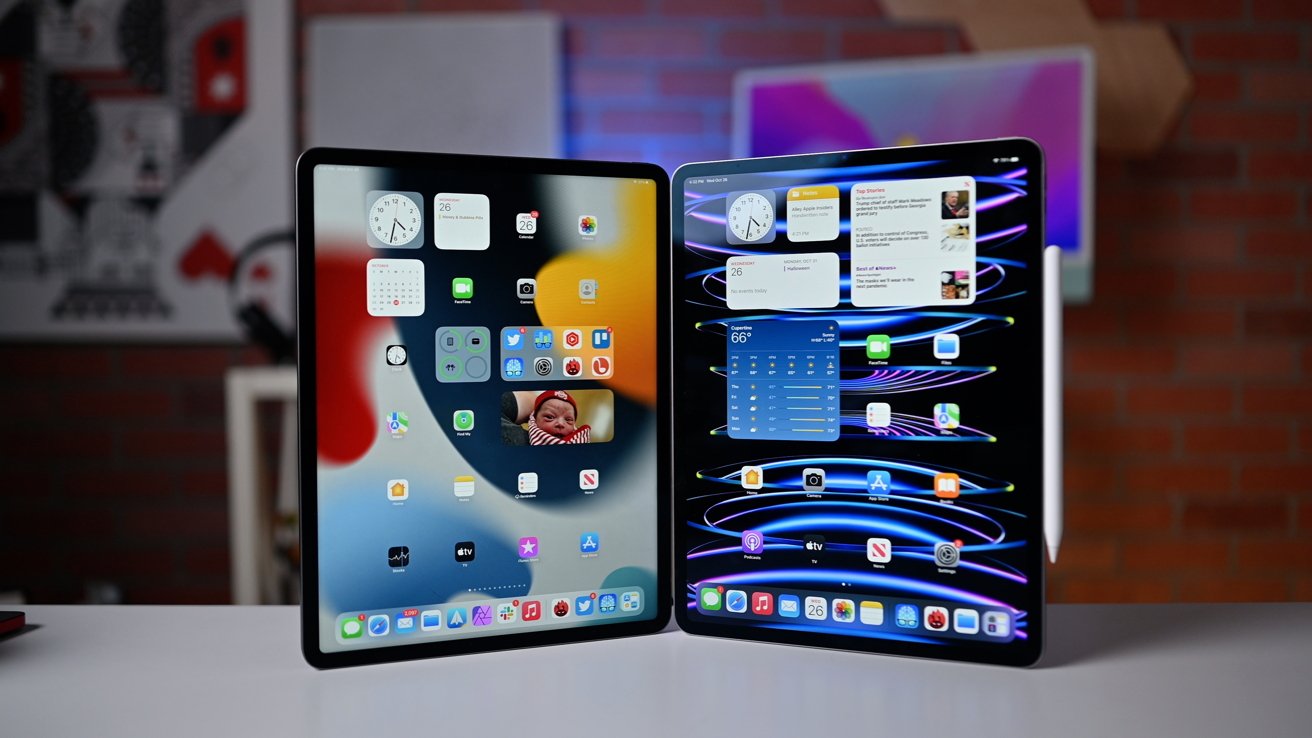Samsung has reportedly had difficulties adapting its production line to the two-stack OLED needed for the new iPad Pro line, which is said to be the best OLED tablet panel on the market.

Two 12.9-inch iPad Pro models
The forthcoming iPad launch on May 7, 2024, is expected to feature two models each of the iPad Pro and iPad Air, with the latter adopting larger screen sizes than before.
According to a report on Monday afternoon by Ross Young of Display Supply Chain Consultants (DSCC), Samsung has been the major manufacturer of the 11.1-inch display in the iPad Pro, with LG making the 12.9-inch model. While the expectation is that the smaller-screen and so lower-cost 11.1-inch iPad Pro will sell more than its larger counterpart, Young says manufacturing has been behind schedule.
Specifically, he says that DSCC has been tracking production of both displays, and the 11.1-inch model has consistently fallen behind that of the 12.9-inch one. For February 24, Samsung reportedly produced half as many 11.1-inch displays as LG did of the 12.9-inch model, for instance.
In March 2024, the ratio was worse with Samsung managing approximately one third as many of the smaller screen as rival LG did of the larger one. The numbers began to get closer in April 2024, but even looking ahead into May, DSCC is predicting that significantly more 12.9-inch displays will be produced compared to the 11.1-inch version.
Young reports that there are reports that Samsung has had production issues to do with the two- or twin-stack OLED screen, and technologies to prevent light leakage caused by electrical cross-talk between OLED cells. Previously, Samsung refused to make a two-stack display for Apple when it was already making one-stack versions for other customers.
In doing so, the new displays are the best tablet displays ever built, according to Young.
"The OLED iPad panels are expected to be by far the best OLED tablet panels on the market with LTPO, 120Hz refresh, a tandem stack and glass thinning resulting in ultra-thin and light displays with high brightness, extended battery life and long lifetime," Young writes.
Apple dropped Samsung as a result, because two-stack OLED displays have significant benefits. Benefits include a dramatically longer useful life.
Later, Samsung caved in and began the research it needed to produce a two-stack OLED display. In January 2024, it was reported that Samsung was beginning production, while LG was already underway.
As well as a later start, Samsung also reported had difficulties converting its single-stack OLED production line to two-stack. Ross says that it's claimed that the company had lower than expected yields and has had to redesign the screens to reduce light leakage between the two panels in the stack.
Regardless of the rumored performance, Apple's new iPad Air and iPad Pro lineups are expected on May 7.
